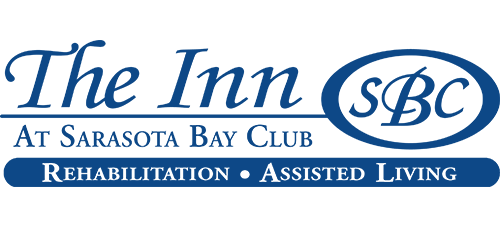As we age, we experience changes that can often make us forgetful of details or routine instances. Forgetting things could be characterized as just a normal part of aging that you don’t have to be worried about. However, if the occurrence of these forgetful moments becomes more and more frequent, and is paired with other issues arising over the course of time, it is important to reach out to a health professional for an accurate assessment.
Alzheimer's Disease is a type of dementia categorized as a degenerative condition. It is most commonly contracted in an individual due to a progressive decline in cognitive function, thus resulting in problems with memory, thought patterns, and behavior.
Most people are familiar with the following terms:
- Early-stage Alzheimer's
- Mid-stage Alzheimer's
- Late-stage Alzheimer's
While these 3 terms somewhat divide up the condition in general, there is a much more thorough scale defining a specific description of one's behavior.
What is the Functional Assessment Staging (FAST) Scale?
The Functional Assessment Staging (FAST) scale is the most validated tool used to assess and grade all types of dementia, including Alzheimer's. This tool, developed in 1982 by Dr. Reisberg, grades Alzheimer's in seven stages, each showcasing different physical functional abilities, functional language abilities, and functional activities. This helps get the most accurate results possible and helps caregivers provide appropriate care. It may look simple, but it's incredible at evaluating a patient's functional ability and progress over time, which helps establish ways to improve the patient's care. 
Stages of the FAST Scale
The FAST scale has seven stages that represent different functioning abilities for a loved one suffering from Alzheimer's. Here's a breakdown of these stages and a description of the characteristics that your loved one would present:
Stage 1: Unaffected Adult
Stage 1 represents an adult that does not show any signs of memory impairment. Any clinical tests performed would show that there is no measurable deficit to be found.
Stage 2: Older Adult
In Stage 2, the older adult may experience very temperate cognitive decline. This decline, where it's common to forget names or temporarily misplace items, is usually only noticeable to the individual and not to their health care provider, friends, or family members.
Stage 3: Early Alzheimer's Disease
During Stage 3, the forgetfulness the individual may have noticed in Stage 2 becomes more frequent. They now are also struggling to fully concentrate on certain tasks and may show hesitation during conversation. Stage 3 can manifest some confusion that is more noticeable to those around them, but still not a huge concern.
Stage 4: Mild Alzheimer's Disease
In Stage 4, symptoms are officially noticeable to family members and friends. These symptoms also include:
- Lack of enthusiasm in their social or work lives
- Meeting someone and then forgetting them almost instantly
- Disorganization (especially of those who were always more organized, methodical, and thorough in their approach to life)
- Decreased ability to complete common responsibilities such as planning and cooking dinner, paying bills, and keeping finances in order
At this point, a clinical diagnosis is often made, and early support becomes essential for daily living.
Stage 5: Moderate Alzheimer's Disease
By Stage 5, the individual is no longer able to operate independently. More often than not, they are capable of recalling their own name or the name of loved ones, but not a home telephone number or address. As their forgetfulness and confusion increases and their confusion becomes much more common, more symptoms become evident:
- Forgetfulness of personal history
- Withdraws from social situations or situations they may find challenging. The individual tends to isolate themselves
- Inability to make the correct clothing choices e.g. wearing a winter coat and boots in the middle of summer
Caregiver involvement becomes critical at this stage, as day-to-day tasks and safety concerns begin to increase.
Stage 6: Moderately Severe Alzheimer's Disease
In Stage 6, the individual will begin to display voids in their memory as well as a noticeable decline in their overall cognitive functioning. Their personality may begin to change and they could begin requiring more assistance with daily activities that they were once able to do independently. Along with these symptoms, they may also experience:
- Wandering and getting lost
- Forgetting family members names
- Experiencing hallucinations, abnormal interactions with absent people or objects and paranoid behavior
This stage often requires full-time supervision and specialized memory care to ensure safety, comfort, and dignity.
Stage 7: Severe Alzheimer's Disease
Stage 7 is the final and most severe stage of Alzheimer’s disease, marked by the loss of both cognitive and physical abilities. Individuals typically require full-time care, as they can no longer walk, communicate, or perform basic functions independently. Sleep issues, disorientation, and anxiety are common, and many become bedridden and vulnerable to infection. At Sarasota Bay Club, our memory care team focuses on providing comfort, dignity, and support through gentle routines and a calming environment, helping families navigate this challenging stage with compassion and guidance.
At The Inn at Sarasota Bay Club, we understand how difficult it can be to take care of a loved one with Alzheimer's. That's why we've established a safe and luxurious facility where your loved ones can heal and return home from a health setback as quickly as possible. We also offer secure assisted living and skilled nursing services where we care for your loved one by providing all the services you could perform for them. Contact us today or download our brochure to learn more.











